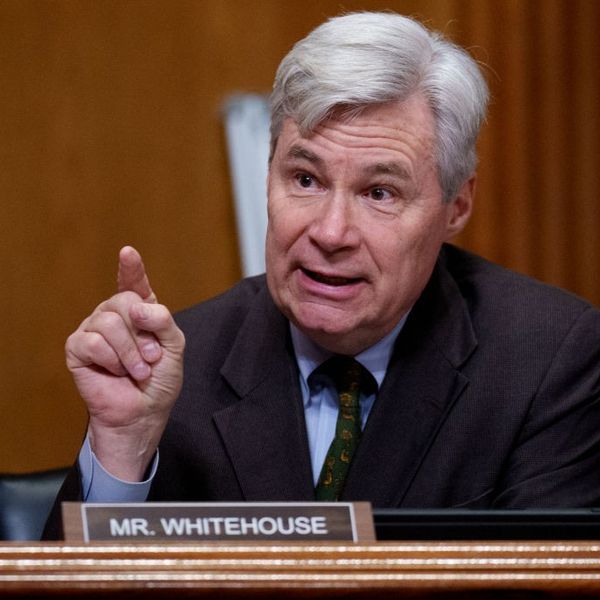US Legislators: To Punish Putin, Frack More
Some legislators are pushing for LNG exports to weaken Russia's energy grip on Ukraine
As the crisis in Ukraine continues, some U.S. legislators have pushed for exporting the nation's natural gas to be used as a "weapon" or leverage point to weaken Russia and President Vladimir Putin's influence on the region.
Yet others charge that this is an idea "untethered from reality."
Ukraine is heavily dependent for natural gas on Russia's state-owned Gazprom, though it has cut off that supply at times, most recently in 2009, while the fracking boom has made the U.S. the biggest natural gas producer.
Some on The Hill are saying that the U.S. should send off all this fracked gas via liquified natural gas (LNG) exports to loosen Russia's grip, and that the Department of Energy should expedite approval of pending permits for LNG exports.
House Speaker John Boehner (R-Ohio), for example, said that exporting more natural gas could "strengthen our economy here and our security here and abroad," and that the "the only thing standing in the way are the bureaucrats in the Department of Energy."
"Expediting approval of natural gas exports is one clear step the U.S. can take to stand by our allies and stand up to Russian aggression, while creating American jobs at the same time," Boehner also said.
Democratic Colorado Sen. Mark Udall added, "The situation in Ukraine shows the urgent need for Colorado and the nation to export more natural gas," and urged quick approval of pending liquefied natural gas terminals, introducing legislation on Wednesday to make that happen.
Republican Congressman Ted Poe (R-Texas) introduced similar legislation on Wednesday as well.
But exporting LNG is expensive, and, as Politico reported:
Even if the pressure from Congress prods the Energy Department to move faster, the practical effect anytime soon would be nil. The U.S. has no currently operating plants that could ship liquefied natural gas overseas, and probably won't until late 2015 at the earliest. And Ukraine has no plants that could convert the liquid fuel back into gas for use in furnaces or power plants.
Energy Secretary Ernest Moniz stressed this point, telling Politico. "The fact is [that pouring U.S. gas into Europe] is just physically not going to happen."
On All In on Wednesday, Chris Hayes and his guests radio host Sam Seder and Dan Dicker, CEO of wealth management group MercBloc, take apart this push for LNG exports as means to neutralize Russian power over Ukraine as well. Aside from climate impacts from increased fracking, it is unrealistic, they say, to think that pushing for more LNG exports would have any effect on the current crisis at all:
_____________________
An Urgent Message From Our Co-Founder
Dear Common Dreams reader, The U.S. is on a fast track to authoritarianism like nothing I've ever seen. Meanwhile, corporate news outlets are utterly capitulating to Trump, twisting their coverage to avoid drawing his ire while lining up to stuff cash in his pockets. That's why I believe that Common Dreams is doing the best and most consequential reporting that we've ever done. Our small but mighty team is a progressive reporting powerhouse, covering the news every day that the corporate media never will. Our mission has always been simple: To inform. To inspire. And to ignite change for the common good. Now here's the key piece that I want all our readers to understand: None of this would be possible without your financial support. That's not just some fundraising cliche. It's the absolute and literal truth. We don't accept corporate advertising and never will. We don't have a paywall because we don't think people should be blocked from critical news based on their ability to pay. Everything we do is funded by the donations of readers like you. Will you donate now to help power the nonprofit, independent reporting of Common Dreams? Thank you for being a vital member of our community. Together, we can keep independent journalism alive when it’s needed most. - Craig Brown, Co-founder |
As the crisis in Ukraine continues, some U.S. legislators have pushed for exporting the nation's natural gas to be used as a "weapon" or leverage point to weaken Russia and President Vladimir Putin's influence on the region.
Yet others charge that this is an idea "untethered from reality."
Ukraine is heavily dependent for natural gas on Russia's state-owned Gazprom, though it has cut off that supply at times, most recently in 2009, while the fracking boom has made the U.S. the biggest natural gas producer.
Some on The Hill are saying that the U.S. should send off all this fracked gas via liquified natural gas (LNG) exports to loosen Russia's grip, and that the Department of Energy should expedite approval of pending permits for LNG exports.
House Speaker John Boehner (R-Ohio), for example, said that exporting more natural gas could "strengthen our economy here and our security here and abroad," and that the "the only thing standing in the way are the bureaucrats in the Department of Energy."
"Expediting approval of natural gas exports is one clear step the U.S. can take to stand by our allies and stand up to Russian aggression, while creating American jobs at the same time," Boehner also said.
Democratic Colorado Sen. Mark Udall added, "The situation in Ukraine shows the urgent need for Colorado and the nation to export more natural gas," and urged quick approval of pending liquefied natural gas terminals, introducing legislation on Wednesday to make that happen.
Republican Congressman Ted Poe (R-Texas) introduced similar legislation on Wednesday as well.
But exporting LNG is expensive, and, as Politico reported:
Even if the pressure from Congress prods the Energy Department to move faster, the practical effect anytime soon would be nil. The U.S. has no currently operating plants that could ship liquefied natural gas overseas, and probably won't until late 2015 at the earliest. And Ukraine has no plants that could convert the liquid fuel back into gas for use in furnaces or power plants.
Energy Secretary Ernest Moniz stressed this point, telling Politico. "The fact is [that pouring U.S. gas into Europe] is just physically not going to happen."
On All In on Wednesday, Chris Hayes and his guests radio host Sam Seder and Dan Dicker, CEO of wealth management group MercBloc, take apart this push for LNG exports as means to neutralize Russian power over Ukraine as well. Aside from climate impacts from increased fracking, it is unrealistic, they say, to think that pushing for more LNG exports would have any effect on the current crisis at all:
_____________________
As the crisis in Ukraine continues, some U.S. legislators have pushed for exporting the nation's natural gas to be used as a "weapon" or leverage point to weaken Russia and President Vladimir Putin's influence on the region.
Yet others charge that this is an idea "untethered from reality."
Ukraine is heavily dependent for natural gas on Russia's state-owned Gazprom, though it has cut off that supply at times, most recently in 2009, while the fracking boom has made the U.S. the biggest natural gas producer.
Some on The Hill are saying that the U.S. should send off all this fracked gas via liquified natural gas (LNG) exports to loosen Russia's grip, and that the Department of Energy should expedite approval of pending permits for LNG exports.
House Speaker John Boehner (R-Ohio), for example, said that exporting more natural gas could "strengthen our economy here and our security here and abroad," and that the "the only thing standing in the way are the bureaucrats in the Department of Energy."
"Expediting approval of natural gas exports is one clear step the U.S. can take to stand by our allies and stand up to Russian aggression, while creating American jobs at the same time," Boehner also said.
Democratic Colorado Sen. Mark Udall added, "The situation in Ukraine shows the urgent need for Colorado and the nation to export more natural gas," and urged quick approval of pending liquefied natural gas terminals, introducing legislation on Wednesday to make that happen.
Republican Congressman Ted Poe (R-Texas) introduced similar legislation on Wednesday as well.
But exporting LNG is expensive, and, as Politico reported:
Even if the pressure from Congress prods the Energy Department to move faster, the practical effect anytime soon would be nil. The U.S. has no currently operating plants that could ship liquefied natural gas overseas, and probably won't until late 2015 at the earliest. And Ukraine has no plants that could convert the liquid fuel back into gas for use in furnaces or power plants.
Energy Secretary Ernest Moniz stressed this point, telling Politico. "The fact is [that pouring U.S. gas into Europe] is just physically not going to happen."
On All In on Wednesday, Chris Hayes and his guests radio host Sam Seder and Dan Dicker, CEO of wealth management group MercBloc, take apart this push for LNG exports as means to neutralize Russian power over Ukraine as well. Aside from climate impacts from increased fracking, it is unrealistic, they say, to think that pushing for more LNG exports would have any effect on the current crisis at all:
_____________________

